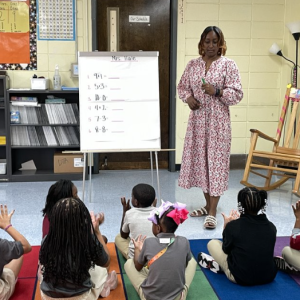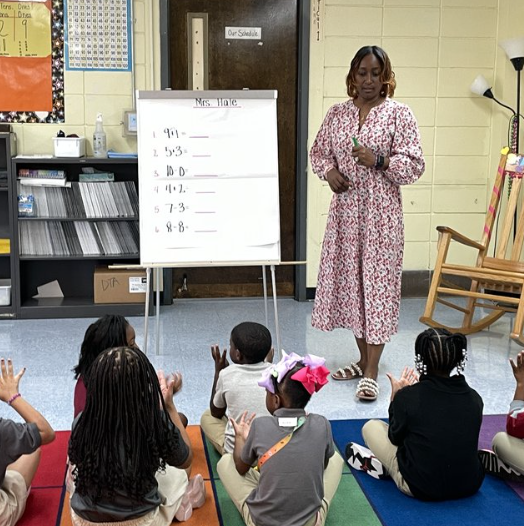
Mississippi, Alabama and Louisiana have seen a promising turnaround in their student reading scores after passing a series of similar literacy reforms
“Among just children in poverty, Mississippi fourth graders now are tied for best performers in the nation in NAEP reading tests and rank second in math.”
All three states have trained thousands of teachers in the so-called science of reading, which refers to the most proven, research-backed methods of teaching reading. They’ve dispatched literacy coaches to help teachers implement that training, especially in low-performing schools.
They also aim to catch problems early. That means screening for signs of reading deficiencies or dyslexia as early as kindergarten, informing parents if a problem is found and giving those kids extra support.
The states have consequences in place if schools don’t teach kids how to read, but also offer help to keep kids on track.
Mississippi, for one, holds students back in third grade if they cannot pass a reading test but also gives them multiple chances to pass after intensive tutoring and summer literacy camps. Alabama will adopt a similar retention policy next school year. It also sent over 30,000 struggling readers to summer literacy camps last year. Half of those students tested at grade level by the end of the summer.
At schools like Schaumburg Elementary, part of the ReNEW charter network in New Orleans, the new training has helped teachers zero in on what students need to read better. The share of kindergarteners reading at grade level at the charter network grew from 38% in December 2021 to 55% this spring; first-graders grew from 19% to 43%.
All three states have trained thousands of teachers in the so-called science of reading, which refers to the most proven, research-backed methods of teaching reading. They’ve dispatched literacy coaches to help teachers implement that training, especially in low-performing schools.
They also aim to catch problems early. That means screening for signs of reading deficiencies or dyslexia as early as kindergarten, informing parents if a problem is found and giving those kids extra support.
The states have consequences in place if schools don’t teach kids how to read, but also offer help to keep kids on track.
Mississippi, for one, holds students back in third grade if they cannot pass a reading test but also gives them multiple chances to pass after intensive tutoring and summer literacy camps. Alabama will adopt a similar retention policy next school year. It also sent over 30,000 struggling readers to summer literacy camps last year. Half of those students tested at grade level by the end of the summer.
At schools like Schaumburg Elementary, part of the ReNEW charter network in New Orleans, the new training has helped teachers zero in on what students need to read better. The share of kindergarteners reading at grade level at the charter network grew from 38% in December 2021 to 55% this spring; first-graders grew from 19% to 43%.
More here at ABC
